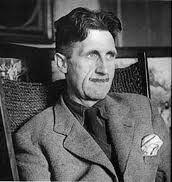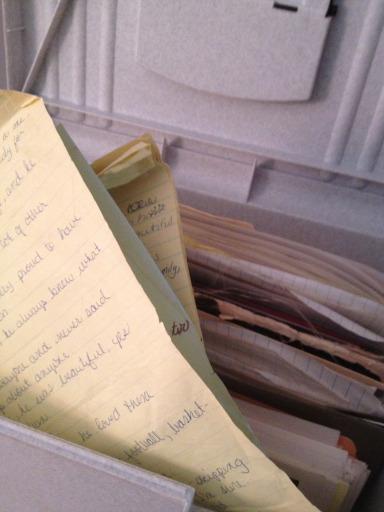
George Orwell
George Orwell started it. His famous piece, “Why I Write,” has inspired writers of all walks of life to talk about whey they write. I’ve never done this before, and on this snowy day, I decided to take a little time to critically analyze why I write, the process, and why I enjoy doing it. It’s been something I’ve wanted to take the time to do, and after speaking about this very topic yesterday with one of my students, I decided to set out upon the task.
* * *
WHY I WRITE
Part I—The Early Years: My Bad Poetry
All I can tell you is that I remember writing poetry to friends, love poems to “boyfriends,” and fictional letters to The Rolling Stones with my childhood friend, Lee, when we were in middle school. I started writing then, and I haven’t really stopped, although I have taken some short breaks in between to work in baseball or have babies. But when I think about it, I guess I never really did stop writing. Some things are just in our blood, and the very thought of not doing it can make one wither.

I remember sitting in a “History of Maryland” class in high school doodling on a piece of paper. I would doodle lines of poetry that would pop into my head, and once the first line came in, I couldn’t stop. My apologies to my teacher, to whom I should have been listening.
Lines of poetry like this one would take over both my mind and pen, and I addressed the emotions I was feeling…
It’s so strange, how precious life is
Once it has left us.
The smile that you possessed and shared with us all—
And the twinkle that your brown eyes contained—
I can see you in the back of my mind.
Yet it always seems so hard to remember. (1981)
I wrote that about Paul, a classmate of mine in high school, who was struck and killed by lightning on his driveway when attempting to bring his little brother’s bike in from the rain. I had a sizeable crush on him, as we often do when we are that age (15 going on 16). But it was difficult for me to understand that he was gone.
Writing was a way to get things out and not have it fester. It was therapeutic to put into words what I was thinking.
I wrote this one in my freshman year of college. It’s obviously about a break-up, which I will not elaborate on.
Untitled
All the miles we have hiked together
Seem to all fade much too quickly.
Paths shared and explored together—
New ways of facing the rocks together,
Never alone.
Looking back at that trail, we have shared a lot;
And we have guided and helped each other.
The dirt, though thick at times,
Never quite turned into mud.
And although the brushes often thickened,
And troubled our times,
We made it through even the thickest of forests.
Until we reached the end of the cliff.
When I slipped and fell,
And you tried to hold on,
But had to let go.
I never meant it to end that way. (1984)
Yes, I kept all this stuff. How it still hurts to read it now.
But ultimately, there’s something about writing that feeds the soul and makes me happy. To see my words on paper, or in my first book, or even on this blog, reminds me that I take tremendous delight in it.
* * *
End Part I

